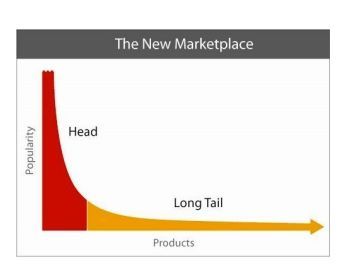You are viewing a single comment's thread from:
RE: If There's No Path for Minnows to Become Whales, Can Steemit Survive? 100% of this post goes to@markrmorrisjr to support #dolphinschool
One of the guiding principals of capitalism is buy low and sell high. The difference is your profit. For the owners of capital, it means keeping costs down to the lowest reasonable rate. For labor, it means negotiating the highest wage for your services. During the Mercantilism era, artisans, guilds, and journeyman (what we would call trades today) were pitted against one another, fighting for the right to be the highest wage labor. Ultimately, it was the owner of capital that decided these things. For owners of capital, a feuding labor force prevented them from joining forces and leveraging larger shares of the profits. So, by it's very nature, capitalism is about perpetuating warring classes. It’s what is best for business.
https://sites.google.com/site/classismswp15/classism-capitalism-the-cause-and-effect
The actual distribution will depend upon the voting patterns of users, but we suspect that the vast majority of the rewards will be distributed to the most popular content...
The impact of this voting and payout distribution is to offer large bounties for good content while still rewarding smaller players for their long-tail contribution. The economic effect of this is similar to a lottery where people over-estimate their probability of getting votes and thus do more work than the expected value of their reward and thereby maximize the total amount of work performed in service of the community. The fact that everyone “wins something” plays on the same psychology that casinos use to keep people gambling. In other words, small rewards help reinforce the idea that it is possible to earn bigger rewards.
https://steemit.com/steem/@stellabelle/steem-whitepaper-for-dummies-reward-distribution

I.E. Yes, Steemit is classicist to the core. It needs a Marxist hard fork.
Um, you can take your marxist hardfork and shove it. That's not what I'm saying. If it's not a voluntary shift, it will lead to further abuse, just in a different vein.
Wow. the marxist reference was more satirical than anything. I believed I was agreeing with your post by pointing out what is wrong with Steemit and agreeing that it needs to change. You make a complaint about capitalism without realizing it:
In my quotes above (did you read them?) I'm pointing out to you that the complaint you have, that there is no "path for a minnow to become a whale", is a "classic" complaint of classism, and that this classism you feel should change is actually inherent in the design of Steemit, as outlined in the Steemit White Paper, which I also just quoted for you. I agree with your post. I agree we need a change. I don't really think Steemit should be communist. How would that even work: a decentralized platform cannot have a central control of economic inputs and outputs. It was just my way of saying that Steemit does indeed need to change, and the thing that needs to change are some of it's capitalistic aspects. However, perhaps you don't realize this, and would like to defend these particular aspects of capitalism despite your complaints?
Yeah, big difference between encouraging voluntary support of others, and trying a top down model that forces some fake version of equality.
And no, that is one version of capitalism. Go back, read history. Look where we started. Capitalism was the means to give each man ownership ability. It freed him from feudalism. He had a stake. But, if the mass of users voluntary surrender their stake to an oligarchy, it looks very much the same as pre-capitalist society, only marginally richer.
yes but at the cost of losing the Commons. I have read history, I think we just have a different interpretation of it. I suppose we could argue the merits of private ownership too, but that's not the part I'm most concerned with. There is a dynamic and much needed balancing between private ownership and the Commons. Without the concept of the Commons, pure ownership is slavery. For instance, do you believe all humans should have equal access to fresh drinking water? Unfortunately fresh drinking water isn't equally distributed on the planet. Should something be done about this, or should "market forces" do their bidding?
If the market were left alone, and not protected by govt/corp partnerships (talking USA here) it remains to be seen what would happen with water. It's obscene that we have a shortage, when unbottling some of it and putting it back into the eco system could go a long way to correcting some of this. Here's my position. Anything that is not voluntary, eventually becomes slavery. Anything. If coercion must be used, it's less than ideal. but, the deck is so rigged right now, it's hard to imagine a world where our reality is different. I just don't believe in using a monopoly on force to make people do "the right thing" because, who gets to decide what that thing is, and how long until that becomes a burden we can't bear?
I wouldn't trust the "masses" to do the right thing either.
Well, being a"statist" is a popular option. But, you can't ask for liberty for yourself you're not ready to extend exponentially to everyone. So there you have it. Common property is great, if voluntarily established and if you go back to US history, you see, schools, libraries and parks, among other things, were originally done that way. But, then we decided force was better. As the financial teeter totter, tipped toward govt coffers through higher taxation and user fees, etc, the public demanded more coercion and public spaces became maintained by cities and states. How's that working out for us? You see the rich neighborhoods do well with that, they get attention from their "representatives" while poor neighborhoods get empty patches of grass that hardly ever gets cut. Meanwhile, private parks, museums and monuments remain some of the most beautiful, publicly accessible spaces in existence.